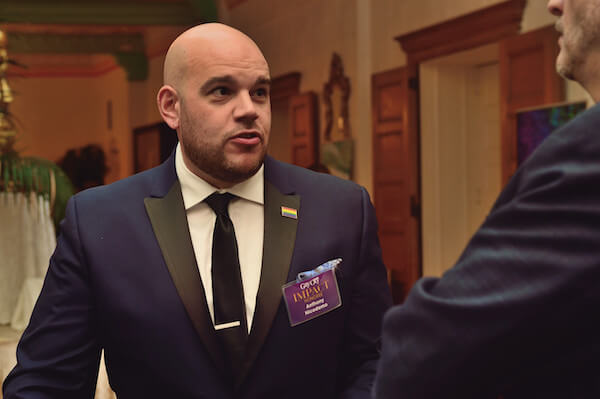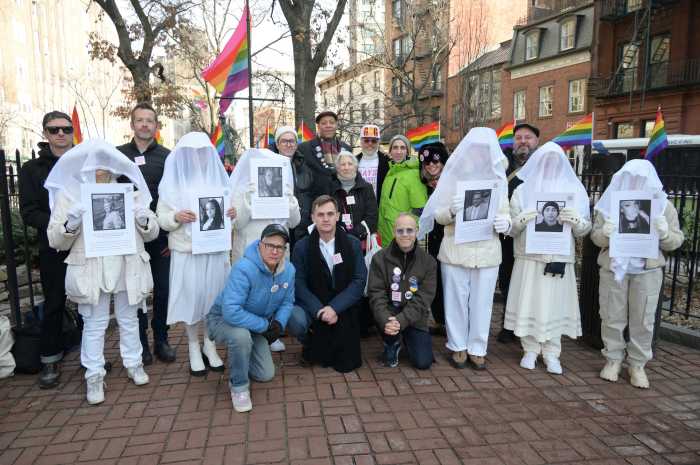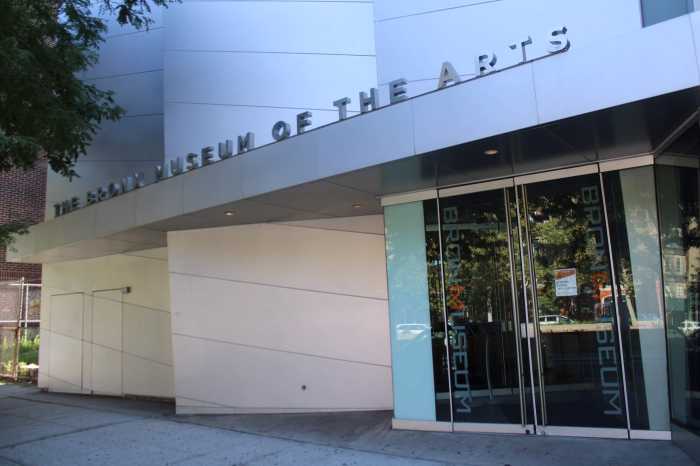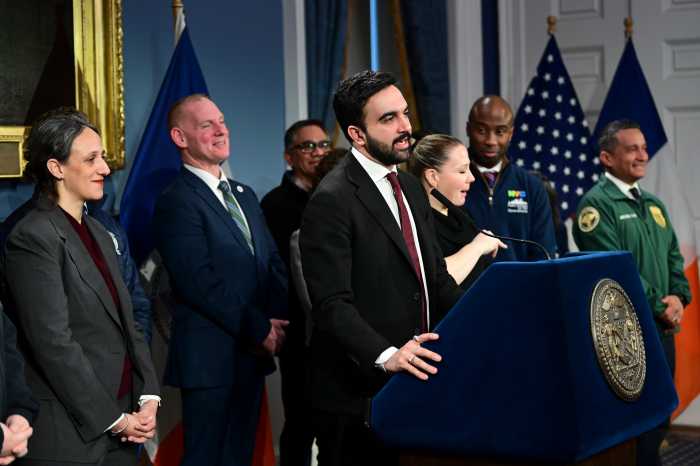Emerging international filmmakers vie for distinction in a showcase of note
“L.I.E.,” “The Eyes of Tammy Faye,” “Sitcom,” “Camp,” are some of the cinematic gems that have emerged from the New Directors festival. By the way, there’s never been a shortage of gay film coming out of this international survey of emerging cinematic voices from around the world.
New Directors/New Films, now in its 33rd consecutive year, is the love child of MoMA’s film department and the Film Society of Lincoln Center. Over that time, it has given American audiences their first taste of directors like Pedro Almodóvar, Atom Egoyan, Spike Lee, Richard Linklater and Wim Wenders. Over the next two weeks, 52 screenings will shuttle audiences between MoMA’s temporary screening room at the Gramercy Theatre and Lincoln Center’s Walter Reade for films by emerging directors from around the globe. While there is certainly gay programming in the mix, you’ll need to dig for it this year, however.
“Sometimes it just plays out that way,” Lincoln Center Film Society’s Graham Leggat said. “It’s not a reflection of the market at all.” He points to a dense slate of queer film at Sundance this year and two recent highlights from a festival he’s wrapped called Rendezvous with French Cinema. Rendevous programmed Robert Salis’ hyper-stylized, boy-on-boy “Grand Ecole.”
The bourgeois vibe at an austere Parisian business school is shattered when a swarthy Arab day laborer arrives on campus. Faster than you can say Rainer Werner Fassbinder, the help starts fraternizing with the student body. A North African sensibility was also present in Merzak Allouache’s screwball comedy “Chouchou.” The titular émigré arrives in Paris posing as a Pinochet refugee and takes up as a cleaning person/receptionist in the office of a psychiatrist who helps him decide he’d like to live as a woman.
If only the gay programming in this year’s New Directors were so straightforward. But one reason it’s harder to find this year is there are only two American films—“Everyday People” and “DIG!”—among the 28 films in the program. And while neither one is a queer film, at least one has an Amanda Lepore cameo.
“DIG!” won the Grand Jury Prize in the documentary competition at Sundance this year, but don’t let that fool you. This movie looks like footage you’d edit out of a wedding video. It chronicles the “Whatever Happened to Baby Jane?” -styled feud between Anton Newcombe of the band Brian Jonestown Massacre and Courtney Taylor of the band The Dandy Warhols. Anton is self-destructive, Courtney’s got edgy hair, who will make it to the top of the charts? Who cares? Wanna-be rock stars strategically erupting at one another every 15 minutes still can’t get around all the tedious record executive talking head footage. Even David LaChapelle—who appears to be dressed as Bob’s Big Boy—comes off like a gossipy whine on the set of a Dandy Warhol video. Further proof that films with exclamation points should never be green-lit.
Luckily, we don’t completely disgrace ourselves. The other American film in the program fares much better. Jim McKay’s “Everyday People” is exec produced by a rock god—REM’s Michael Stipe—but it evidences none of the Springer aesthetic of “DIG!” The film happened when black culture hawk Nelson George approaching director McKay with an idea to do a film about race relations in America. Through a workshop process with their cast, they arrived at a script detailing the lives of those who live, work and eat in the landmark Brooklyn diner Raskin’s that teeters on the verge of being Bed, Bath and Beyond-ed. The largely unknown cast and urban flair hark back to last year’s breakout “Raising Victor Vargas.”
But McKay does beg the question what is a new director? Clearly it doesn’t mean first-time filmmakers as McKay already released the indie features “Girls Town” and “Our Song.” Both films had what Leggat calls “a reasonable art house release” which he admits complicates his definition of a new director as “someone who has not had a major theatrical release in this country.” Things get even murkier in international waters, where a foreign director could release dozens of films in his native country, as long as he’s not shown here, he’s a new director. “The main thing is they’re all working in the independent tradition,” Leggat argues, “It’s not like Jim McKay went out and made ‘Barber Shop Two.’” Still, as McKay was able to wrench more drama out of a diner cash register than most directors can wring from an entire film, his haircutting flick might just fly.
“The Story of the Weeping Camel” not only flies, but spits and hisses. This digi-gloss on an exotic culture is this year’s “Fast Runner,” swapping out Inuits and ice for nomadic Mongolians and sand. A camel that won’t allow her newborn to nurse is juxtaposed with the family whose only assets are the camels they herd. Even without the compelling story, it would still be worth seeing for the spitting, mewling and just generally scene-stealing camels. As for programming tracks that seem to emerge at this festival, Leggat says, “Serial killers are supposed to act in a completely random manner, but over time a pattern emerges.”
Director Annette Olesen knows all about serial killers. Her stark Danish film “In Your Hands” goes inside a women’s prison to follow Anna behind bars as she takes a job as prison chaplain. Chalk one up for Olesen for being one of the few women in the Dogma boys club. “In Your Hands” is destination viewing for lesbians, as is the French film “Eager Bodies.” Leave it the French to work out a practical ménage a trois. Xavier Giannoli’s debut throws twenty-somethings Charlotte and Paul into independent affairs with frisky cousin Ninon, but when Charlotte receives bad news about her health, they experiment with becoming a triple. It would have a disaster on Lifetime Television, but the French cast manages to bat this sexy, lean, moving film out of the park.



































